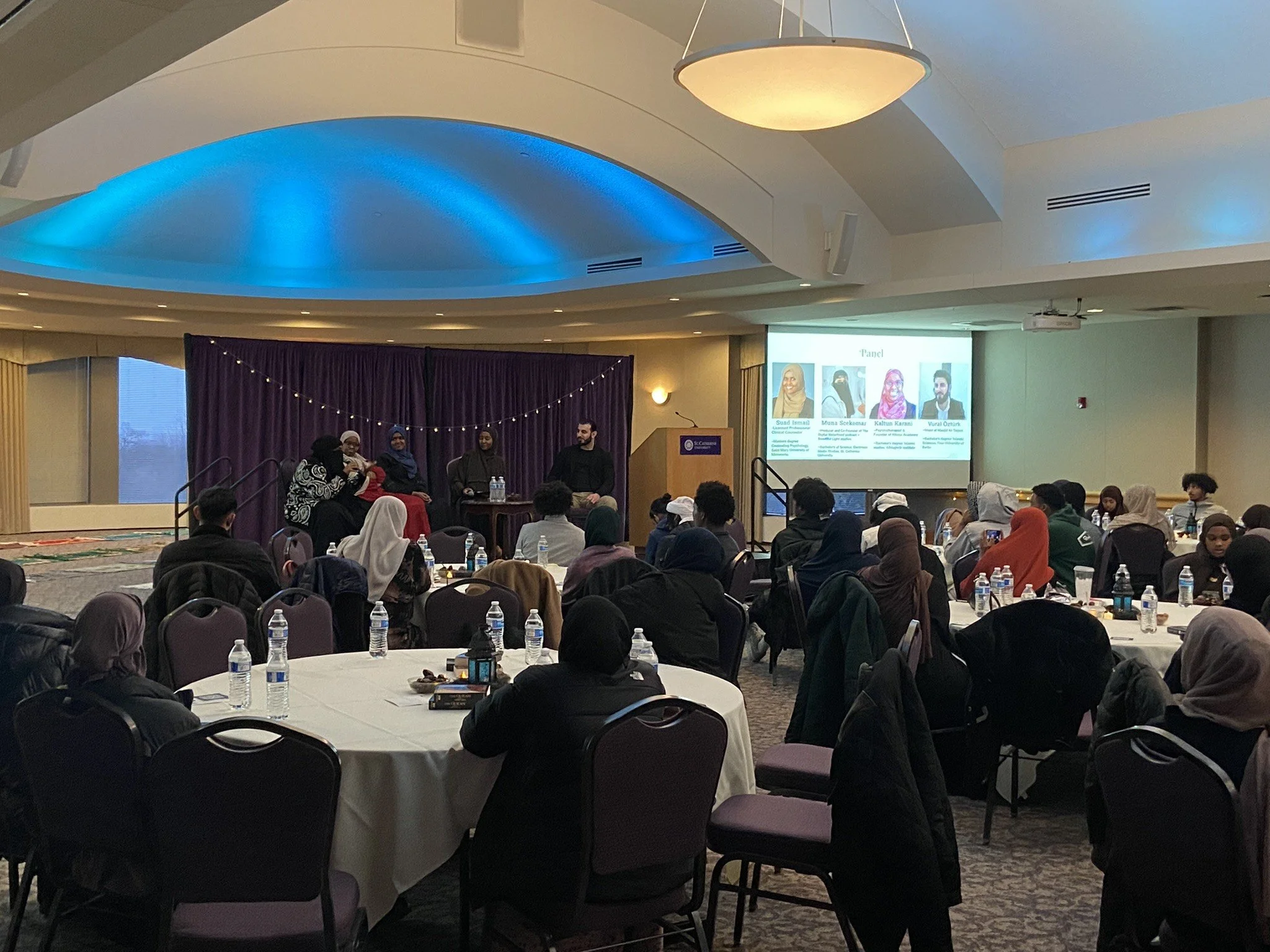Pillow Talk - A conversation about reading romance as a feminist act
By Najma Hussein
In a world with an evolving literary landscape and increasingly diverse discussions around feminism, the iconic genre of romance literature stands as a compelling center for exploration. The event that recently took place on Friday, Sept. 29, in the Center for Women called Pillow Talk - A Conversation about Reading Romance as a Feminist Act, provided a platform for engaging with this intersection. Overall, the event provoked intriguing dialogues about empowerment, representation and feminism.
The event had high attendance, and those present talked about all things romance and feminism. Research and instruction librarian Amy Mars, who leads the One Read for Racial Justice program, said, “I was pleased with it. Not just the turnout, but how engaged the audience was. Seeing the enthusiasts and the critical lens the audience brought to the topic was great.”
The discussion had two amazing panelists, Lydia Fasteland ‘12 and Taylor Harwood ‘15, both St. Kate’s alumni. Fasteland and Harwood, who share a passion for romance literature, host a podcast titled Calling Cards, which explores the multifaceted world of romance novels.
At the talk, Harwood invited us to consider reading romance as a unique lens through which we perceive the world. “We are feminist because we’re choosing to center women's stories, women’s pleasure, women's inner voices. And we’re also kind of reading against the grain in a world that just doesn’t prioritize women's happiness, pleasure and vanity,” she said. “It’s the same for queer folks, the same for people of color, who just don’t center those stories about happiness or prioritize those things. And so reading a genre that does — it’s kind of radical.” She emphasized that it encourages us to appreciate the diversity of life stories, fostering awareness and dismantling preconceived assumptions.
The event made me reevaluate my viewpoint on reading romance books from a feminist perspective. I’ll be honest; I didn't really know what that meant. Had I been reading these books without taking into account feminist ideals? What connection did reading romance have to feminism? During the event, all of these thoughts were running through my head.
However, this experience taught me that the key lies in seeking diverse representation, shattering stereotypes and promoting empowering relationships. In the past, literary romances often promoted prejudices and restricted people to predetermined roles. In addition, white women have made up the majority of the protagonists. With this in mind, it is critical to question these prejudices and advocate for more diversity in the romance genre. It is also vital to encourage and promote healthy relationships while dismissing narratives that validate abuse.
Fasteland pointed out that reading romance novels is a personal activity free from the pressure of ideological conformity. “It doesn’t matter whether or not you’re reading it through a feminist lens,” she said. “It is still feminist to just enjoy. It doesn’t matter if it is or not. You are still just enjoying it. That’s okay.”
This event brought many students together who all had the same shared interests. With One Read for Racial Justice, there will be more events centered around books and student discussion. Don’t miss a conversation with Junauda Petrus, the author of this year’s One Read pick “The Stars and the Blackness Between Them,” at The O’Shaughnessy on Thursday, Nov. 16 at 6 p.m.



![Listening to the future: “The [uncertain] Four Seasons” explores the impact of climate change](https://images.squarespace-cdn.com/content/v1/5d5d5bbe2cc2d000018127a9/1696800596906-9QYYK83U02CEYLE3KSH6/mia+cover+pic.png)



